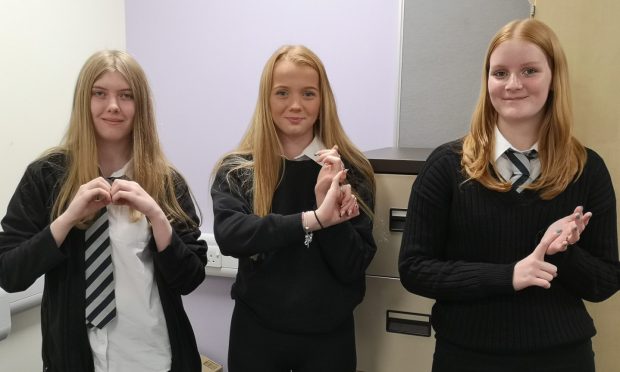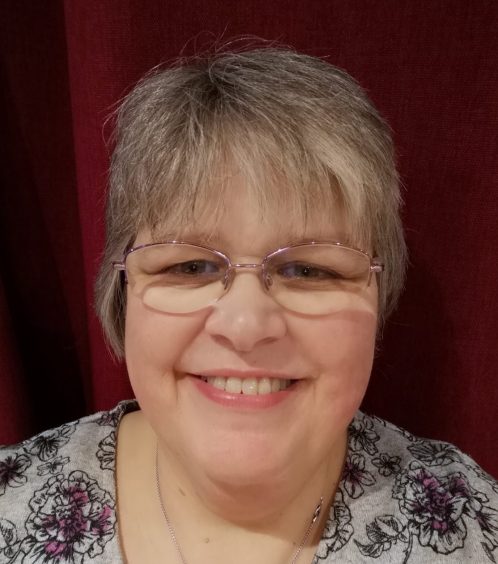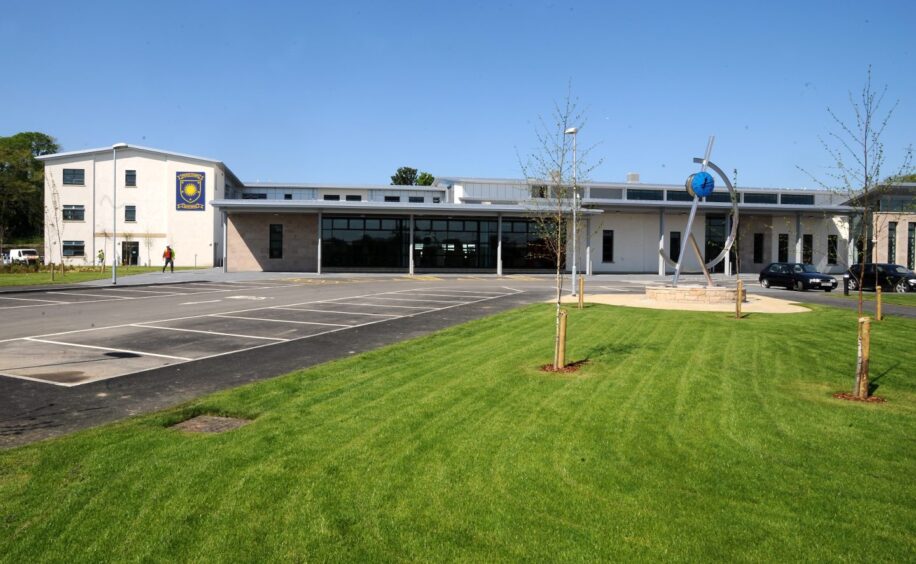Dingwall Academy is leading the way in addressing an interpreter crisis by producing the next generation of British Sign Language (BSL) experts.
The Highland school has been at the forefront of deaf education for more than 30 years. As well as having additional resources for deaf pupils, the school is specially soundproofed.
And now it’s offering SQA qualifications in BSL up to the equivalent of Higher.
Which is timely, given the Scottish Government has now recognised the “ongoing issues surrounding the shortages” of BSL interpreters.
Sheila Lundberg is a co-ordinator for the Highland Deaf Education Service, and is based at Dingwall Academy.
She told The P&J of the urgent need for a new generation of BSL interpreters, and what Dingwall Academy is doing to help.
“There’s a huge national shortage of interpreters.
“If you can’t get an interpreter, you’re then dependent on a family member.
“Let’s say you’ve got an appointment at the doctor, you don’t want to be dragging along your daughter or your mum to sign for you. You want an independent person who’s bound by confidentiality rules, is appropriately trained and knows exactly how to handle things.”
Dingwall Academy has gone ‘way above and beyond’ in getting interpreters up and running
For more than three decades, Dingwall Academy has offered BSL qualifications as a mainstream language option for both hearing and deaf pupils.
Students in S3 and S4 can take SQA’s BSL Award at levels 3 to 5, and from this year have the option to progress to levels 5 and 6. Level 6 is equivalent to Higher.
“Dingwall has gone way above and beyond in getting interpreters up and running,” said Sheila.
“I’ve been doing this for a long time and I can say that Dingwall Academy has been a game-changer, we’ve definitely made a difference.
“We’re very much at the forefront of BSL nationally.”
The Scottish Government introduced the “ambitious” L1+2 initiative in schools at the beginning of the 2021-22 school year.
This means pupils now learn their own language (L1) plus two others (L2 and L3).
The L2 is taught from Primary 1, and the L3 from Primary 5 to 7. There is compulsory teaching of at least one foreign language until S3.
“The big problem is that the second language has to be one that can be examined in the local secondary,” said Sheila. “So you can’t have BSL as a second language at school.”
Dingwall pupils’ influence on BSL Act
But that doesn’t mean you can’t effect change, as Dingwall pupils found out when the BSL Scotland Act became law in 2015. The Act promotes and protects the use of BSL in Scotland.
“When the BSL Act was at the consultation stage, we ran lunchtime sessions for pupils to come up with ideas and opinions about what could be done.
“We were inundated with pupils from right across the school.
“And when the bill actually passed, the summary showed that of 42 points, 16 had been proposed by Dingwall Academy pupils.
“I said to the pupils: ‘You guys have changed the law in this country.’ And they just thought, ‘wow’.
“For kids to see that they can have that kind of an effect is amazing.
“Dingwall’s done its bit, I have to say.”
Such has been the popularity of the qualifications at the school, several pupils have chosen to continue their BSL journey at Heriot-Watt University, gaining an MSc in Interpreting.
“BSL is a beautiful, full, vibrant living, language,” said Sheila. “You should come in and see one of our classes, it’s just total enthusiasm.”
Seeing what life is like from a different perspective
Dingwall Academy pupil Aoife is undertaking the BSL Award level 6.
She wants to become a police officer, and thinks the qualification will come in “very useful”.
She added: “I think it will be beneficial if I meet or need to help someone who is deaf. It’s a very interesting skill to know.”
Fellow pupil Sophie-Louise believes there are wider benefits to gaining the qualification.
“Learning BSL has given me the opportunity to interact with deaf people outside school. It’s something that makes a massive difference to the deaf community.
“I feel it should be taught in more schools.”
And classmate Caroline said learning BSL had changed her perspective.
“BSL is a fun language to learn and a good skill to have. Even knowing basic signs can be helpful.
“It opens your mind and lets you see what life is like from a different perspective, which is really interesting.”
Meanwhile, Megan, who is working towards the level 5 qualification, says BSL is proving useful in other subject areas.
“BSL helps me understand English better because you have to break it down and think about what it means,” she said.
‘Here they continue learning something they’d otherwise have to stop’
Karen Cormack, head teacher at Dingwall Academy, is delighted with the uptake of BSL at the school.
She said: “We offer a taster experience of BSL in S1 and S2, which our pupils engage well with. They enjoy learning a new language in such a practical away.
“It’s fantastic to now be able to offer pupils the opportunity to go on and study an SQA BSL award at level 6, and to have pupils continue with the language when they previously would have had to stop.
“We are delighted that our pupils and staff are leading the way.”



Conversation